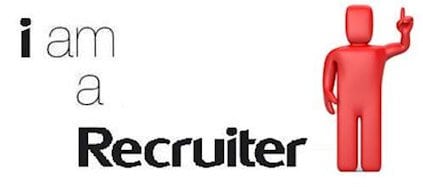Many recruiters find themselves going through the motions of searching, interviewing, and hiring. It’s smart to take a step back and think about your process. Determine areas where you could be more efficient.
If you really want to step up your game and evolve into an expert recruiter, follow these 10 steps and re-evaluate your recruiting strategy.
1. Understand your client’s organization and its needs.
In order to become a better recruiter, you need to thoroughly understand not only the organization and the job details but also the kind of candidate that will fit in with their company culture.
2. Focus on quality of candidates over quantity.
This goes without saying, but it’s worth highlighting. It’s much better to have a few excellent candidates than many that are suitable but average.
3. Network and foster relationships with clients that you represent.
Keep in communication with the hiring manager throughout the process. Determine not only what they’re looking for but also the kinds of candidates that they want to avoid.
4. Collect and analyze data regarding successes and failures.
Come up with a system to measure how often your candidates are hired and how frequently they are rejected. Identify patterns to help you fix flaws in your search process.
5. Be assertive and concise when attracting potential candidates.
Avoid putting people off by being too aggressive. When you reach out to your prospects, always explain exactly why you have taken an interest in their skills.
6. Don’t limit your search to the obvious platforms.
Everybody is looking there. Go further than other recruiters by connecting with industry experts who may know excellent contacts that would otherwise slip under your radar.
7. Act as an advisor to your candidates.
Treat candidates with care. If you can make your candidates feel comfortable and relaxed when interviewing, they will know that they can contact you with any questions or concerns. A transparent approach and trusting relationships can save you time and money in the long run.
8. Require your hiring manager to define the job with specific expectations.
Top candidates will expect clear job details upfront. As well as a specific job title, make sure that you can tell them what tasks they will be responsible for, the company’s goals, and what they are expected to achieve.
9. Conduct a preliminary phone screenings to narrow down your prospects.
This is an extremely effective technique, because you will save yourself a lot of time by weeding out candidates who do not pass your phone screenings.
10. Don’t let yourself get too attached to end result.
Accept the fact that some of your candidates will be hired and some will not. If a candidate is not a match for your client, this is not a failure. Learn from the experience to understand your client’s needs better, to improve your search process, and to help your candidates secure roles.
Every job is an opportunity to learn. Even if you consider yourself an expert recruiter, with the right attitude you will learn from every decision you make. There is always room for improvement! Keeping up with new industry information. By also reminding yourself of the basics of good recruiting, you will ensure that you are continually improving your game.


